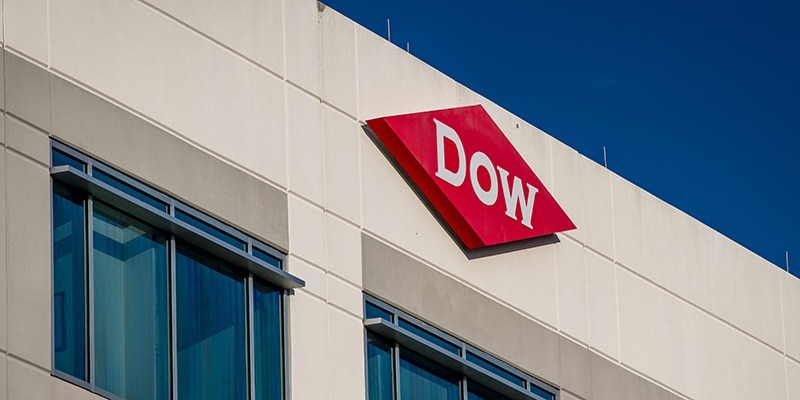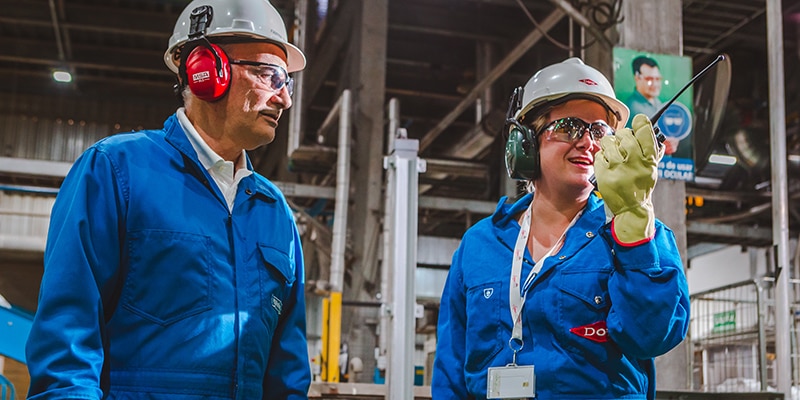
Why purpose leads to profits
Profit and purpose should not be an either/or proposition.
“Can profit and purpose go hand-in-hand?” This question has long been debated in business circles and the investment community. But in a year marked by a global pandemic, racial inequality and the greatest economic challenge in a generation, a better question may be: “How can it not?”
Increasingly, the public is looking toward corporations to take a more active role in environmental, social and governance (ESG) issues. JUST Capital’s 2020 survey results found that while 92% of Americans agree that it’s important for large companies to promote an economy that serves all Americans, only 50% believe that companies are actually doing that. The results build on an earlier survey by JUST Capital and Harris that found almost nine in 10 Americans agree that the current crisis is an opportunity for large companies to hit “reset” and focus on doing right by their stakeholders.
Recently, Dow was named to the 2021 list of JUST 100 companies, a ranking by Forbes and JUST Capital of America’s best corporate citizens, and also was rated as the leading chemical company among workers. We have long believed that treating our workers and customers with fairness, investing in our communities, fostering environmental stewardship, and making products that benefit society are more than just the right thing to do. It is a business imperative that helps us grow faster and perform better on the top and bottom line. It also is an opportunity to do better and be better, for all our stakeholders.
Creating value, sparking lasting change
As we recover from the impact of COVID-19, it’s clear that corporations can’t retreat to business-as-usual if we want a more equitable and more secure future. Businesses have been driven by necessity to step up in new and creative ways, and our stakeholders are expecting us to use our platforms and resources to help employees and communities overcome societal and environmental challenges.
In turn, progressing ESG and sustainability efforts can position businesses with positive, tangible impacts to both the top- and bottom-line by growing market potential, opening new adjacencies, reducing cost, building customer relationships and promoting diversity.
In 2020, Dow has taken steps to accelerate our ESG efforts and strengthen our relationships with our key stakeholders by:
- Advancing sustainability efforts at a faster and larger scale. In June, we announced new sustainability targets that put us on a path to carbon neutrality by 2050 and a world without plastic waste. To achieve our plastics targets, we are collaborating with customers, brand owners and the value chain to significantly increase global recycling, and to redesign and promote sustainable packaging solutions that consumers want and value. For example, to increase our access to recycled feedstocks, we are in the process of scaling our capabilities with Fuenix for a second advanced recycling facility which will produce pyrolysis oil from waste plastic. Furthermore, we’re on track to more than double our product sales based on renewable bio-based feedstocks this year with proven CO2 footprint advantages as well.
- Providing new technologies and solutions to support COVID-19 relief efforts. Dow’s materials science know-how and strong design collaborations with our customers have helped enable innovative solutions during the pandemic and are reflected in our improved customer experience scores. Recent collaborations have resulted in the development of much-needed respirators for healthcare workers, as well as a simplified face shield design.
- Actively addressing systematic racial inequalities in the workplace and our communities. We’ve launched Dow ACTs, our framework designed to address systemic racism and inequality within our organization and in our communities. The framework includes actions to deepen our commitment to invest in advocacy, support our community response to racism and improve the diversity of our talent pipeline. This includes a $5 million commitment over the next five years to support the Black community.
Profit and purpose should not be an either/or proposition. In fact, research finds that companies that pay attention to ESG see higher profitability and a reduction of downside risk. By harnessing the power of purpose and integrating it into our decision-making, Dow creates long-term sustainable value – for our business and our stakeholders.
Howard Ungerleider, President and Chief Financial Officer





